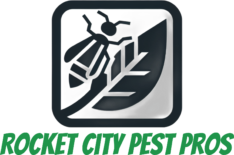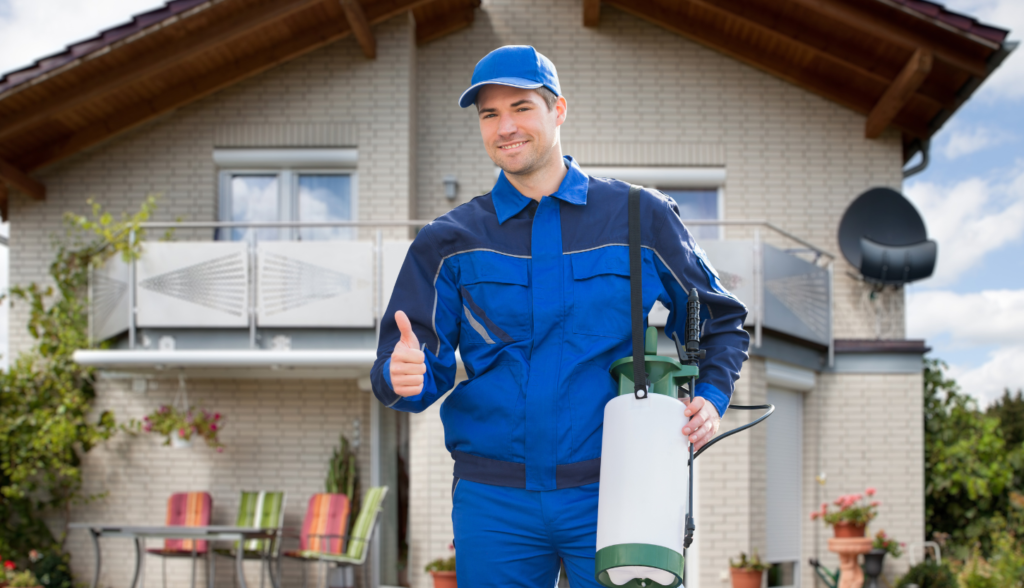Have you ever found yourself questioning whether it’s safe to remain in your Madison, Alabama, home immediately following a pest control treatment? Ensuring the safety of your home and family after pest control services is a pressing concern for many residents. This article will discuss various aspects related to the safety of staying in your house post-treatment, while providing valuable information tailored specifically for the citizens of Madison.

Understanding Pest Control Treatments
Pest control treatments are essential for maintaining a safe and comfortable living environment. Understanding what these treatments entail can help you make more informed decisions.
Types of Pest Control Treatments
The type of pest control methods used can significantly affect the safety of your home post-treatment. Below, find a summary of the common types of pest control treatments and their general safety levels:
| Treatment Type | Description | Safety Considerations |
|---|---|---|
| Chemical Insecticides | Involves the use of chemical solutions to eliminate pests. | Check for re-entry times specified by the pest control company. |
| Organic Treatments | Uses natural substances to exterminate pests. | Generally safer, but still follow advisory guidelines. |
| Biological Control | Introduction of natural predators to control pest population. | Minimal risk if applied correctly. |
| Physical Methods | Traditional methods like trapping and baiting. | Safe with minimal precautionary measures. |
Pest Specificity
Different pests require varying approaches for extermination, which could affect your safety precautions. For instance, termite control might involve extensive use of insecticides, while rodent management might primarily use traps.
Local Pest Issues
Madison, Alabama, is susceptible to certain pests like mosquitoes, termites, and rodents due to its warm climate. This regional specificity should be considered when evaluating the safety of post-treatment re-entry.
Safety Precautions Before and After Treatment
Taking specific precautions before and after pest control treatments can help ensure the safety of your household. Here, you will find guidelines tailored to these critical moments.
Pre-Treatment Safety Measures
Prior to the pest control treatment, several steps should be taken to prepare your home:
- Cover Food Items: Ensure all food items are sealed or stored away to avoid contamination.
- Remove Pets: Pets should be relocated temporarily to avoid exposure to potentially harmful chemicals.
- Seal Personal Items: Personal belongings, especially those frequently used, should be covered or stored away.
Immediate Post-Treatment Guidelines
Once the pest control treatment is completed, following these guidelines can enhance safety:
- Ventilation: Ventilate your home by opening windows and running fans to dissipate any lingering chemicals.
- Follow Re-Entry Times: Adhere strictly to the re-entry times provided by your pest control service.
- Surface Cleaning: Wipe down surfaces to minimize residue contact, focusing on areas like kitchen countertops and dining tables.
Chemical Residue and Its Risks
One of the primary concerns for homeowners is the chemical residue left behind after pest control treatment. Understanding its potential risks and methods for alleviation is crucial.
Health Implications of Residue Exposure
Chemical residues can have varying impacts depending on exposure levels and sensitivity. Common symptoms of exposure include:
- Respiratory Issues: Inhaling chemical residues can cause respiratory problems, especially in individuals with pre-existing conditions like asthma.
- Skin Irritation: Direct contact with chemical-treated surfaces can cause skin irritation or allergic reactions.
- Long-term Effects: Prolonged exposure, even in small amounts, can lead to more severe health concerns.
Mitigating Residue Risks
To minimize the risks associated with chemical residues:
- Regular Cleaning: Implement a routine cleaning schedule post-treatment to remove residual chemicals.
- Use Safe Cleaning Agents: Avoid harsh cleaning agents that might react with pest control chemicals. Instead, use mild, eco-friendly cleaning solutions.
- Pest Control Follow-Up: Schedule follow-up inspections to ensure that the chemical levels have subsided to safe levels.
Professional Pest Control Services in Madison, Alabama
Choosing a reputable pest control service is essential for ensuring both effective pest elimination and the safety of your household.
Selecting a Reliable Service Provider
Here are factors to consider when selecting a pest control service:
- Licensing and Certification: Ensure the company is licensed and employs certified pest control professionals.
- Local Reputation: Opt for well-reviewed local companies familiar with Madison’s specific pest issues.
- Safety Protocols: Choose a service that outlines clear safety protocols both before and after treatment.
Understanding Their Safety Commitments
A trustworthy pest control company will provide:
- Detailed Safety Guidelines: Clear instructions on preparation and post-treatment practices.
- Product Information: Transparency about the chemicals and methods used during the treatment.
- Emergency Contact: Availability for any emergency concerns post-treatment.

Hygiene Practices Post-Pest Treatment
Maintaining excellent hygiene practices after pest control treatment ensures your home remains safe and clean.
Cleaning Protocols
Post-treatment cleaning involves several critical practices:
- High-Traffic Areas: Focus particularly on high-traffic areas where chemical residue is more likely to accumulate.
- Use of Protective Gear: Employ gloves and masks while cleaning to avoid direct contact with residues.
- Regular Disposal: Empty vacuum bags and dispose of cleaning materials regularly to prevent accumulation of harmful substances.
Maintaining a Pest-Free Environment
Following the pest control treatment, maintaining a clean environment helps to prevent reinfestation:
- Routine Waste Disposal: Ensure garbage is disposed of regularly and bins are cleaned frequently.
- Food Storage: Store food in airtight containers to prevent attracting pests.
- Periodic Inspections: Regularly inspect potential pest entry points, such as cracks and crevices, and seal them promptly.
Addressing Concerns and Misconceptions
It’s common for homeowners to have concerns and misconceptions regarding pest control treatments. Addressing these can help in making more informed decisions.
Common Concerns
Here are some frequently raised concerns:
- Chemical Safety: Many worry about the long-term impact of pest control chemicals. Understanding the specifics of the chemicals used can alleviate these concerns.
- Cost and Efficacy: The cost-effectiveness of pest control treatments is also a common concern. Ensuring you get a detailed plan and cost breakdown from your service provider can help manage expectations.
Misconceptions Debunked
Several misconceptions can lead to unnecessary fears:
- All Natural Methods Are Always Safe: While natural methods may seem safer, improper application can still pose risks.
- Insecticides Always Leave Toxic Residue: Many modern insecticides break down quickly and leave minimal residue.
Regulatory and Health Guidelines in Alabama
Understanding the local regulations and health guidelines concerning pest control can further enhance your sense of security.
State Regulations
The State of Alabama has specific regulations governing the use and application of pesticides:
- Licensing Requirements: Pest control operators in Alabama must be licensed, ensuring they meet state standards for safety and efficacy.
- Application Guidelines: Strict guidelines govern how and where pesticides can be applied to minimize risks to human health and the environment.
Compliance with Health Standards
Ensuring compliance with local health standards includes:
- EPA Guidelines: Following EPA (Environmental Protection Agency) guidelines for pesticide use.
- Adequate Record Keeping: Pest control providers should maintain detailed records of treatments, which can be crucial for future reference.
Conclusion
When considering whether it is safe to stay in your Madison, Alabama, home after pest control treatment, the answer depends on several factors including the type of treatment used, safety precautions taken, and the reliability of your pest control service provider. By understanding these factors, following recommended safety measures, and staying informed about local regulations, you can ensure a safe, pest-free environment for your family.
In summary:
- Familiarize yourself with the specific pest control treatments that are being applied.
- Take proactive safety measures before and after treatment.
- Minimize risks associated with chemical residues through proper cleaning and ventilation.
- Choose a reliable and reputable pest control service.
- Maintain hygiene and preventative measures post-treatment.
- Address any concerns and debunk misconceptions with accurate information.
- Follow state and local regulations to ensure compliance and safety.
Your home is your sanctuary, and ensuring its safety post-pest control treatment is paramount. With the right information and precautions, you can confidently navigate this process and enjoy a safer, pest-free living environment in Madison, Alabama.

